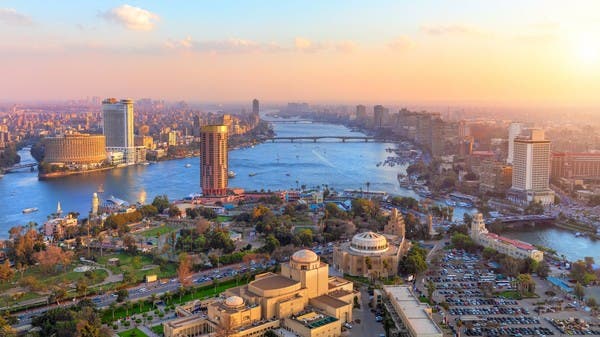Egypt has become the latest example of the suffering sweeping a number of countries against the backdrop of rising inflation and yields and declining global growth, as investors, still agonizing over recent defaults by Russia and Sri Lanka, are watching Egypt as a case study to gauge whether the developing world can avoid The full foreign currency debt crisis, how quickly the crisis can pass, and navigating through more difficult credit terms.
The turmoil became very clear in the Egyptian origins. Amid doubts about debt repayment in one year to its highest levels since 2013, and to the worst in the region, according to the model of “Bloomberg” agency.
This sent the pound to its weakest level since the sudden devaluation in 2016, and prompted investors’ demand for additional returns to buy Egyptian bonds instead of Treasuries above 1,200 basis points in July. The spread narrowed to 857 basis points on Friday, posting its biggest monthly drop in more than two decades, according to JPMorgan data.
It is difficult to ignore some of the signs of stability emerging in the country this month, with the new central bank governor being a watershed reason for optimism in addition to the ongoing talks with the International Monetary Fund. However, concerns will remain high on investors’ minds until it becomes clear that Egypt will devalue its currency and the IMF package will be large enough to fill the financing gap.
Cali Davis, an economist at Oxford Economics Africa, said: “To stave off non-payment risks, Egypt will need additional external support, particularly in the context of ballooning current account deficits and weak capital inflows. If Egypt is unable to secure more financing Externally, concerns will increase significantly.
The cost of insuring Egyptian sovereign debt hit a record high last month, reaching 1,500 basis points, before declining to about 940 basis points for the week ending August 26, but it is still higher than Turkey and Angola.
And the pain felt by highly indebted countries – such as Egypt, which has a debt-to-GDP ratio of about 94% – cannot be ignored.
Egypt has $47.6 billion of outstanding foreign currency debt, including more than $5 billion of dollar and euro-denominated securities maturing in the fourth quarter, according to data compiled by Bloomberg and seen by Al Arabiya.net.
All these reasons make investors evaluate the risks related to Egypt. Sri Lanka, the first country to stop paying bondholders in foreign currencies this year, comes to mind, saddled with exorbitant food and fuel costs that fueled protests and political chaos. Then Russia followed suit in June after being caught in a web of sanctions.
Support from the International Monetary Fund may be the difference – something investors who are sticking to in the region are pointing to, along with the country’s foreign-exchange reserves.
While the central bank’s net international reserves fell to $33.14 billion in July, they are still enough to fund the current account deficit and foreign debt in the near term, investors say. Moody’s Investors Services expects reserves to stabilize and gradually increase as non-energy exports rise and foreign inflows recover.
The International Monetary Fund has been a major player in emerging markets this year. Pakistan is awaiting $1.2 billion in funding after the fund’s board meeting on August 29. With IMF officials in Colombo for talks until the end of this month, Sri Lanka’s central bank governor expects to disburse the money by the end of the year.
In turn, Matthew Fogel, London portfolio manager and head of sovereign research at FIM Partners, said: “Egypt is not Sri Lanka – it has much higher reserves and much better financing options going forward.” “Egypt’s problem can be controlled through stricter policies and the support of official creditors.”
Egypt, a major food importer, is struggling to cope with a surge in grain prices fueled by the Russia-Ukrainian war. Gulf countries jointly pledged to provide more than $22 billion in deposits and investments to support Egypt’s economy, which is a mainstay in the Arab world.
Just days after a change in central bank leadership, Egypt’s prime minister said on August 22 that the country was close to concluding an agreement with the International Monetary Fund on a new loan.
With the International Monetary Fund favoring a more flexible exchange rate, talk of further devaluation pushed the Egyptian pound to its lowest level since December 2016 in the foreign market last week. Even after devaluing it by about 15% in March, analysts say the currency still needs further depreciation to reduce Egypt’s funding gap.

